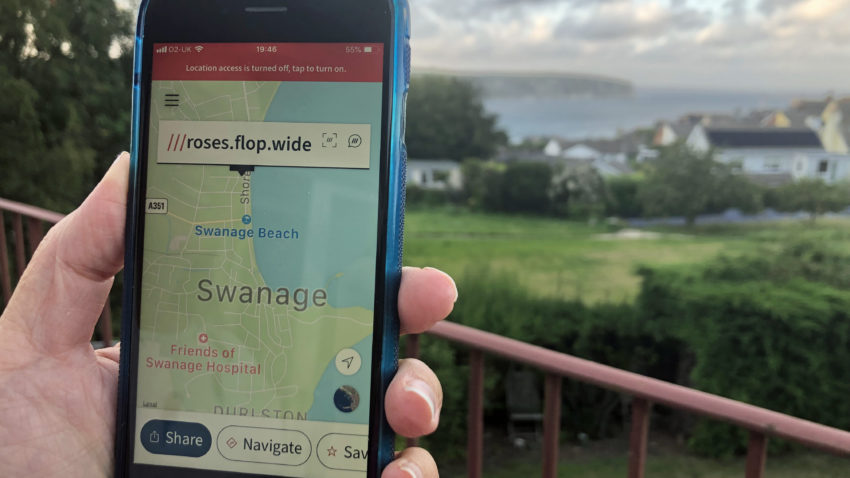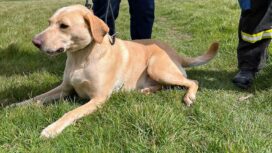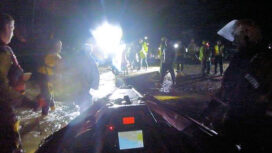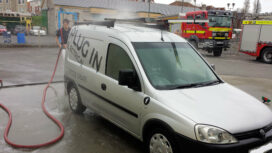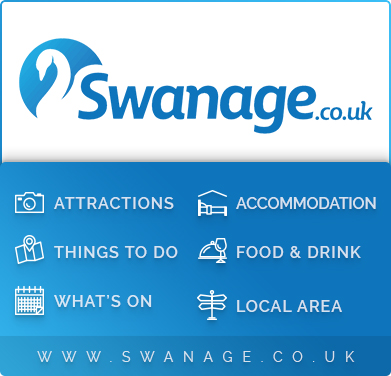Dorset Police, Swanage RNLI and Swanage Coastguard are asking those exploring rural and coastal areas to download location finding software like what3words, so they can always tell someone precisely where they are in the event of an emergency.
With a mobile phone in most people’s pocket it’s easier than ever to phone 999 to get help but in the middle of the countryside or out at sea, there are often few distinguishable landmarks, rarely any signposts and no postcode addresses to pinpoint a person’s location.
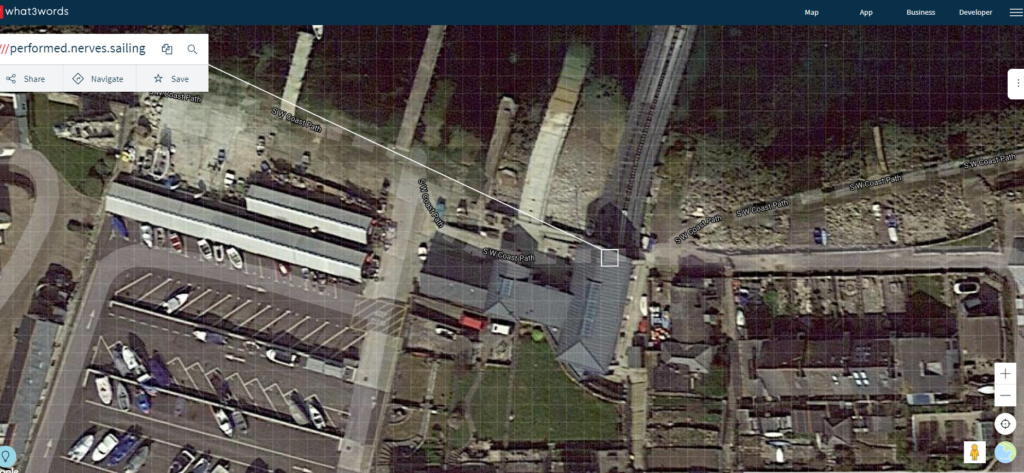
What3words locates Swanage Lifeboat Station with the words ///performed.nerves.sailing
Divided the world into three metre squares
An increasingly popular way to give a precise location is using the what3words phone app. This software, which was first developed in 2013, has divided the world into three metre squares and given each square a unique combination of three words.
The idea is that these three words are easy to say and share, to let someone know exactly where another person is.
It works just as well in a field, as it does in a town and can also be used for non-emergency situations. This includes arranging a place to meet up with friends, helping delivery drivers find the correct door and pinpointing a camping pitch in a field.
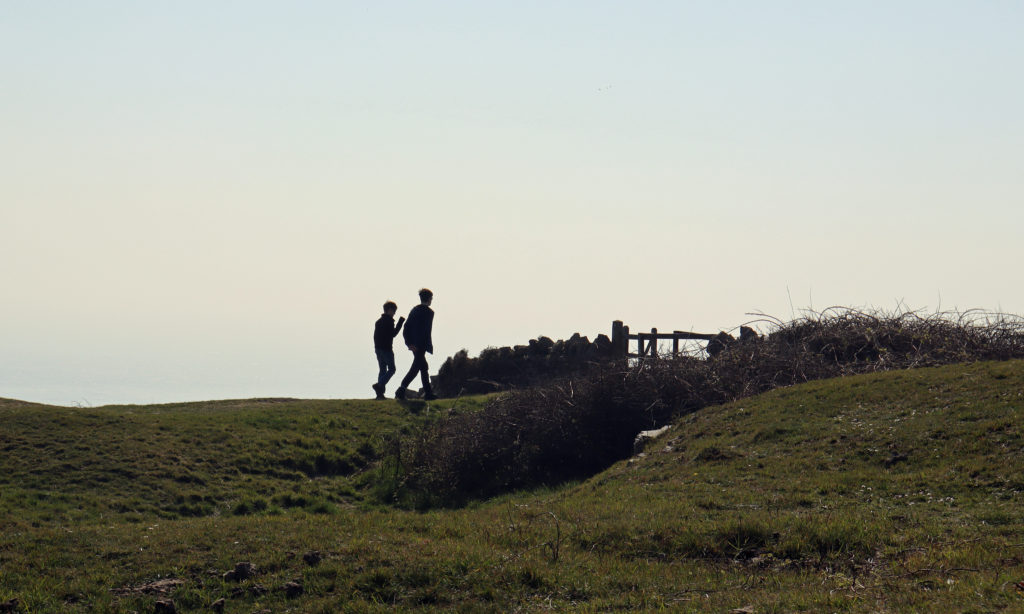
“Help 999 know exactly where the emergency is”
However it’s in emergency situations where it has proved most crucial. Dorset Police said:
“Being able to give your precise location in an emergency can save vital time and lives. One way to be prepared is by downloading the free What3words app so you can help 999 know exactly where the emergency is.”
One of the biggest benefits of this app to a coastal community like Swanage is that as well as the land, it also names every three metre square section of the sea.
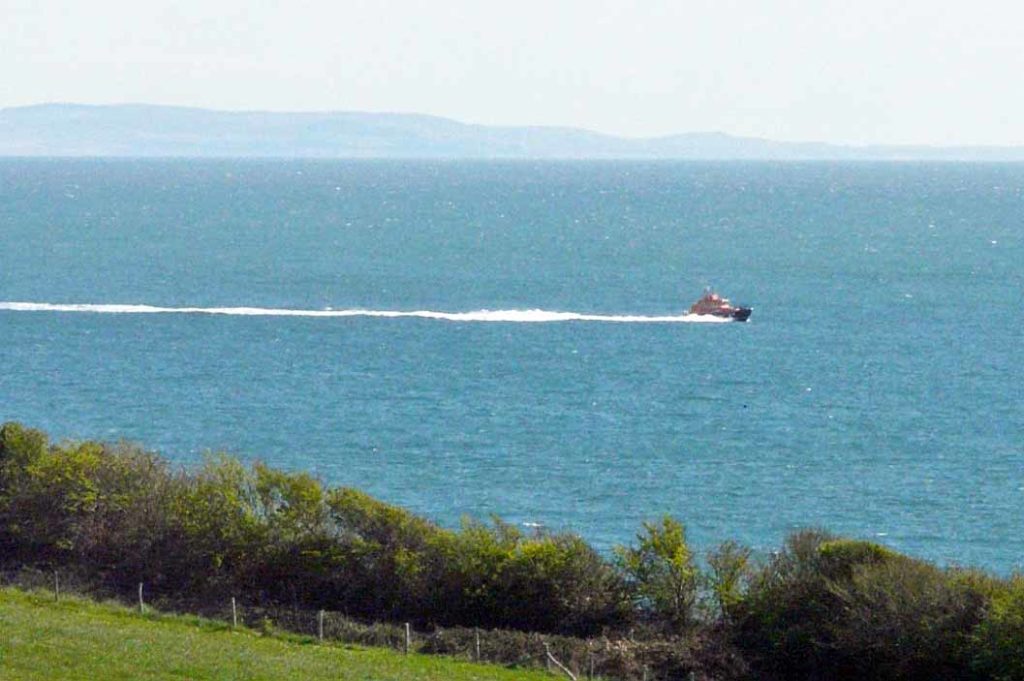
Swanage all weather lifeboat often has to search large areas of sea for casualties
“In some situations a few minutes will make the difference between life and death”
Coxswain of Swanage Lifeboat, Dave Turnbull said:
“Only last week we were searching for a paddleboarder who had been blown away from the shore and was unable to get back to the beach.
“Although the young man had a phone and could see some landmarks, it was hard to establish his position in relation to the landmarks as he thought he was much closer to land than he actually was.
“After nearly half an hour of searching, the paddleboarder was found two and a half miles from the beach that he had started from, having drifted across the shipping lane entrance to Poole Harbour.
“This incident really brought home the importance of knowing where you are, as in some situations a few minutes will make the difference between life and death.
“What3Words is an app that can locate someone to a three by three meter square. This information can be really helpful for finding a casualty and we increasingly receive coordinates from UK Coastguard based on this location information.
“Our recommendation to anyone visiting the coast is to make sure you know exact details of where you set out from, where you are going and if you are planning to leave the shore, have a piece of equipment that can track your location.”
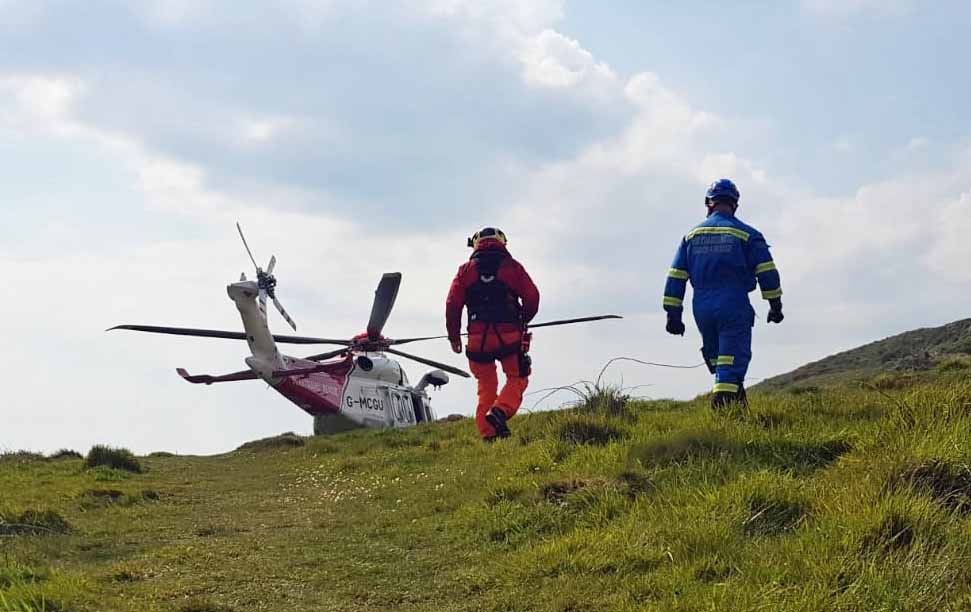
Swanage Coastguard rescue in Durlston
Does have its limitations
While the what3words app is useful, it does have its limitations. It relies on a user to spell or copy the words correctly and to keep them in the right order.
Some of the three word combinations for different places are very similar for example inflame.seaside.leather (Beach Gardens sports pavilion in Swanage) and inflame.seaside.feather (in the middle of the outback in Western Australia), however common sense can iron out these problems.
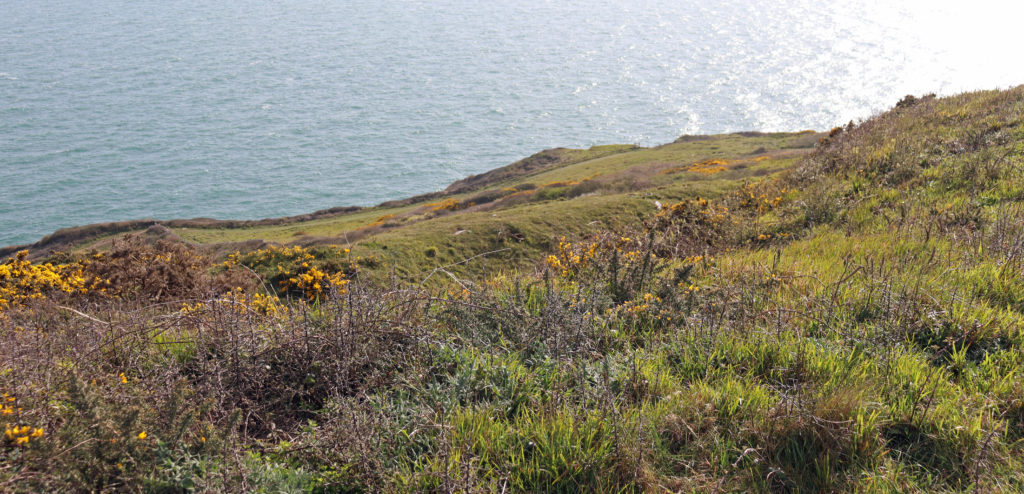
Remote areas of Purbeck coastline can often have few distinguishing landmarks
“Trialling new technology called Good Sam”
Swanage Coastguard station officer, Ian Brown said:
“The what3words app is one of the tools to locate someone in an emergency situation. Definitely mobile technology is changing the way emergency services can respond to an incident.
“Dorset Police is one of the few forces in the country trialling new technology called Good Sam. This means that a 999 call handler can send a person calling them a text message with a link, the person clicks on the link and this allows the control room to see the incident via the phone’s camera.
“This can help determine, not only the location, but also the level of response required, which is then passed onto our coastguard team attending the incident.
“With Swanage Coastguard, we used what3words to help locate a reported sighting of a stranded badger at Old Harry Rocks recently. Of course Old Harry Rocks is a well known location, but when you get up there, it covers a large area.
“In the morning, we were able to stand at the same spot, where a couple saw the badger the night before, using what3words. Unfortunately we couldn’t find it but at least we knew we were looking in the right place!”
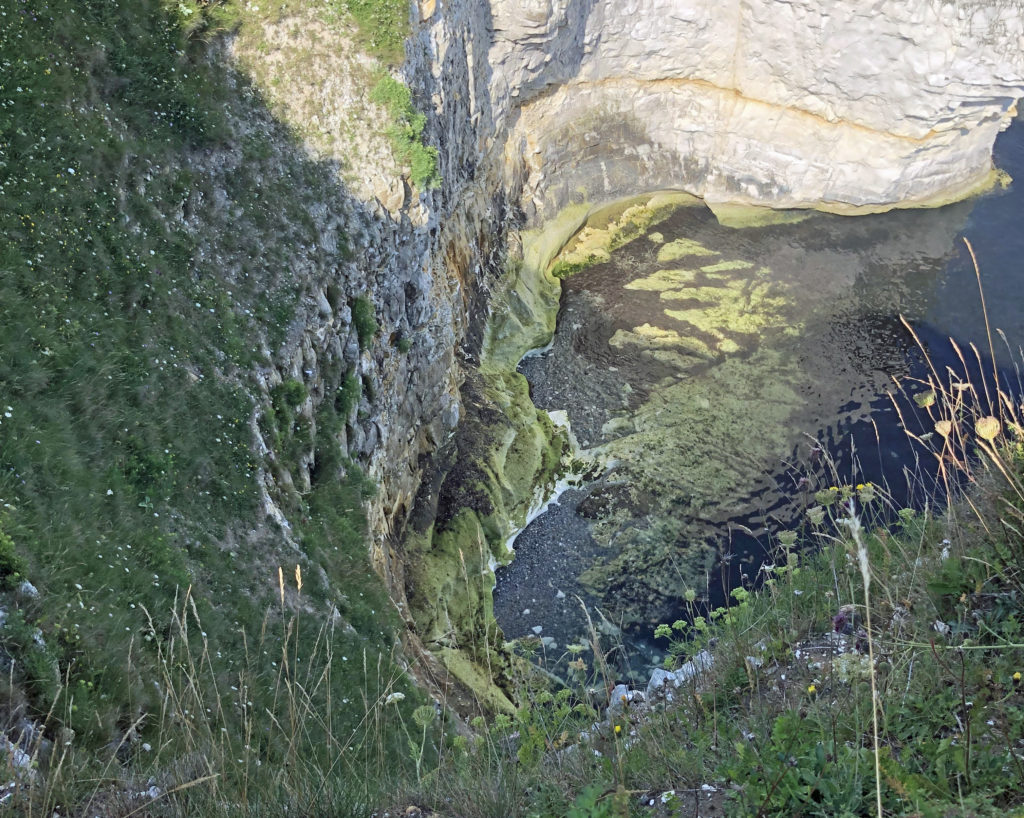
The spot at Old Harry Rocks where Swanage Coastguard was directed to by the use of what3words to look for a stranded badger
No phone signal around Durlston and Anvil Point.
Of course, being able to phone in this information relies on a signal and you can’t always get that along the Purbeck coastline around Durlston and Anvil Point.
What3words app will still be able to provide a three word location without a signal but it still requires someone to get into phone range to relay the message.
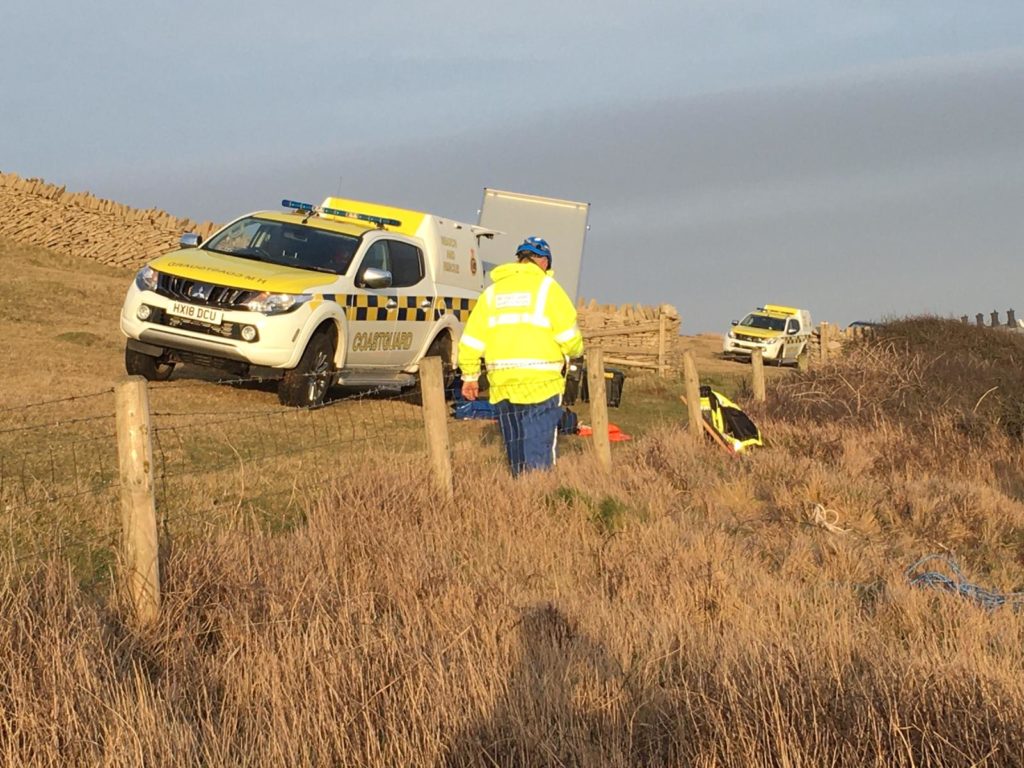
Swanage Coastguard going to the aid of a climber
“Tell someone where you are going and the time you’ll get back”
Ian Brown added:
“There’s a good case for putting in mobile phone coverage for this area, just like they have done in Lulworth.
“With a phone signal, there’s so much information that we can gather to ensure we’re heading to the right location, whether it’s what3words, Good Sam or just being able to Facetime.
“I’d really recommend downloading the what3words app now, especially if you are in the outdoors industry, so you’ve got it before you need it. You don’t want to wait until you’re in trouble to start installing it.
“I would add that to tell someone where you are going and the estimated time you’ll get back, is still good basic advice. Also know the local geography of where you are going, so you know the names of landmarks and rock climbs and yes, a traditional map is still a good idea!”
